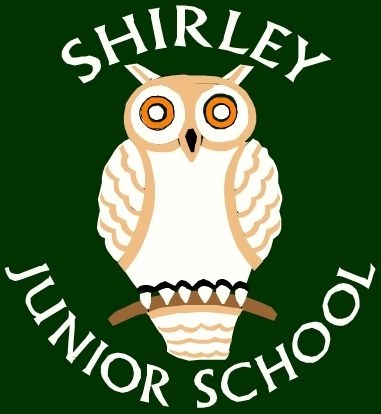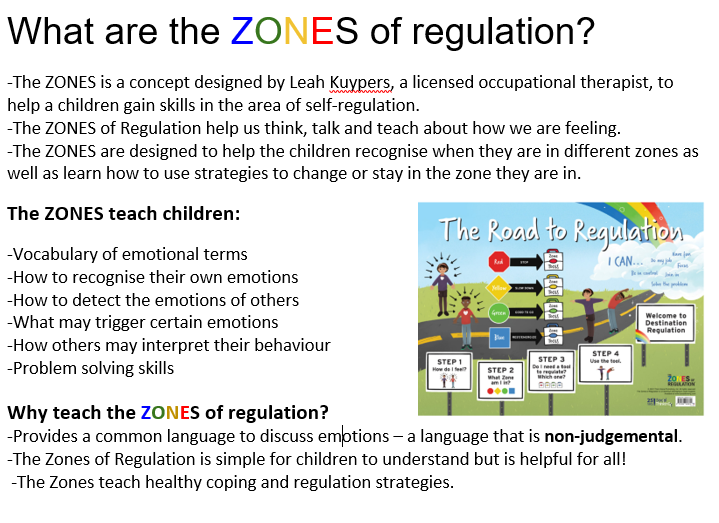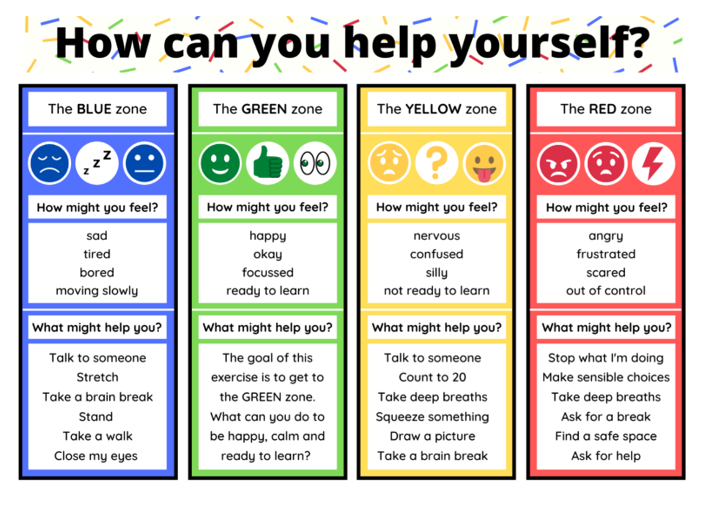Behaviour and Relationships
We are an emotionally literate school where pupils develop the skills of self-regulation and learning from mistakes by repairing and reflecting. We foster a sense of belonging and acceptance, so children grow to become honest, responsible citizens of their community.
Everybody at Shirley Junior School is a leader of behaviour. We have adopted a Distributive Leadership approach to support pupils with challenging behaviour so that all staff support behaviour and are aware of their roles and responsibilities, including Governors, Senior leaders, teachers and support staff.
We understand that behaviour needs to be taught. All our teaching reflects the Equality Act 2010 ensuring there is no discrimination for any pupil or family with protected characteristics.
Adults in the school aim to develop their relationships with all children so that children feel cared for and are happy to receive influence from the adults around them, in the classroom and on the playground
One page, visual policy
Following feedback from parents, we are excited to share our visual, one-page policy:
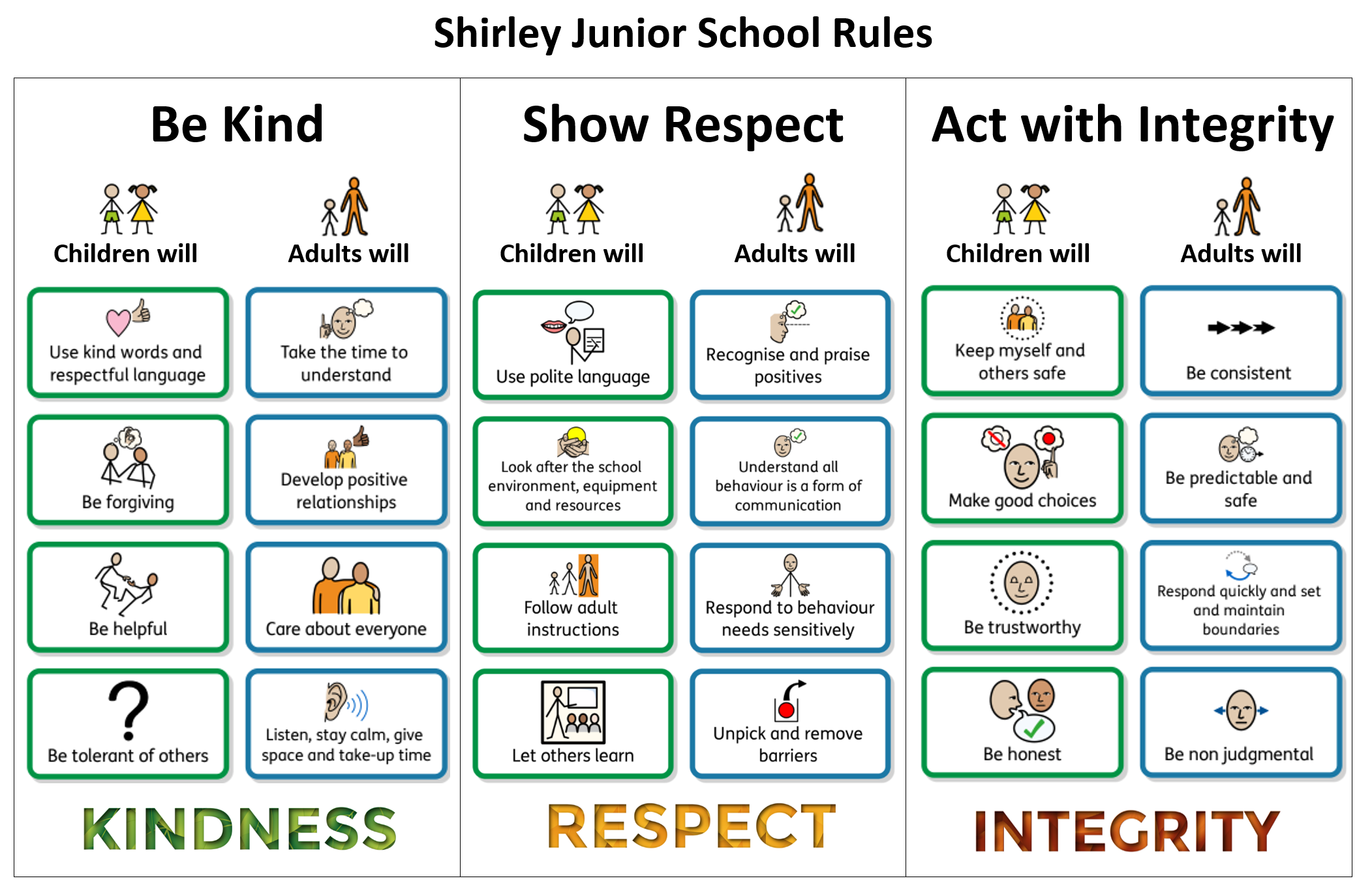
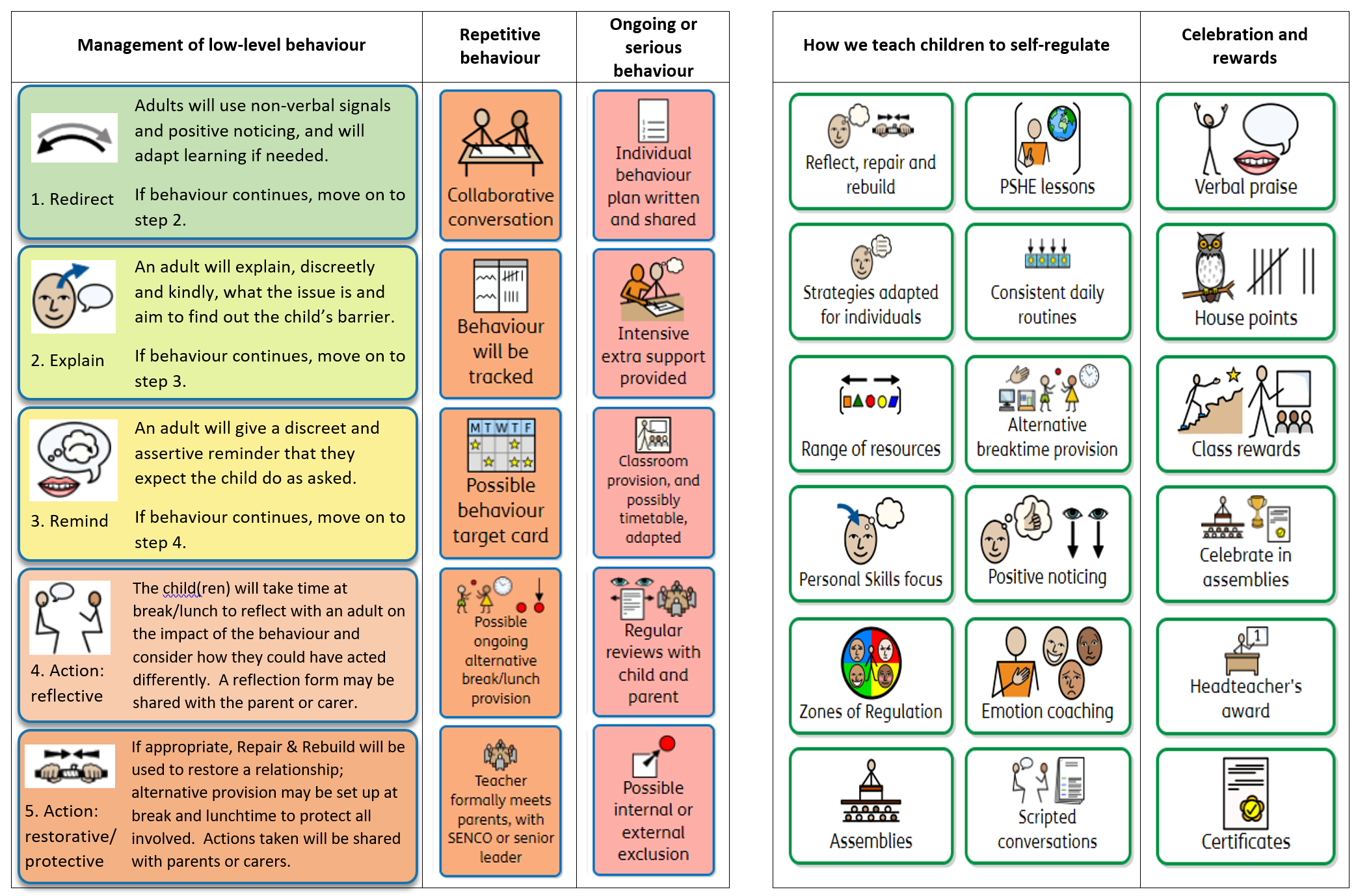
Dealing with conflicts
When conflicts occur, we use a restorative approach called Repair and Rebuild. The children (and/or adults) involved, with a neutral third-party if helpful, ask and answer the following questions in order:
Repair and Rebuild
- What happened?
- What were you thinking at the time?
- How were/are you feeling?
- Who do you think has been affected?
- What needs to happen to put things right?
- Does there need to be an action?
Children from each year group have been trained to act as Repair and Rebuild monitors of the playground, so they can help their peers resolve conflicts.
Rewards and celebrations
Verbal Praise
We aim to recognise effort rather than achievement, and recognise that this may look different for each child. Staff give verbal praise as often as possible, so that all children know that their efforts are noticed and appreciated. Verbal praise is given where pupils demonstrate our school Values. One house point at a time will be awarded by adults around the school which are regularly collected and houses celebrated in assemblies.
Children are given positive recognition by adults during learning time when they have demonstrated improving one of the personal skills within their learning. This recognition will be explicit, naming the skill they are demonstrating and how they are showing this skill. One house point at a time will be awarded by adults.
Being Proud of own efforts
We encourage our children to develop self-efficacy through identifying when they have made extra effort and produced work they are particularly proud of. Regular opportunities are built into the learning so pupils reflect on what they are proud of. Pupils can choose to share this work they are proud of with peers in their class, other staff members, the headteacher or deputy headteacher, where they will be awarded a Headteacher Award sticker. The child is encouraged to send a Marvellous Me message home to their parents/carers.
Peer to Peer recognition
Peer to Peer recognition is used in the classroom to encourage pupils to recognise and praise the effort of others in their class. Strategies such as sticky notes, 2 stars and a wish, lolly stick signs and learner of the week book cover are used by teachers to encourage peer to peer positive recognition.
Each class agrees on a class target that they feel they need to develop that supports their positive classroom charter. At the end of each session the class decides if they have earnt a marble for demonstrating the target. The class agrees to a celebration activity when they have achieved an agreed number of marbles set at the start of the challenge.
Whole school recognition
Personal Skills certificates are given by the class teachers during assemblies, with a focus on one of the school’s personal skills. Values certificates are given by the Head Teacher during whole school assemblies, with a focus on one of the school’s three values each half term.
House Points
All pupils belong to a house for their time at Shirley Junior school They are awarded house points from adults along with verbal praise given for a range of reasons. House points are collected regularly, rewards and celebrations are given to the house with the most points and various points throughout the year.
